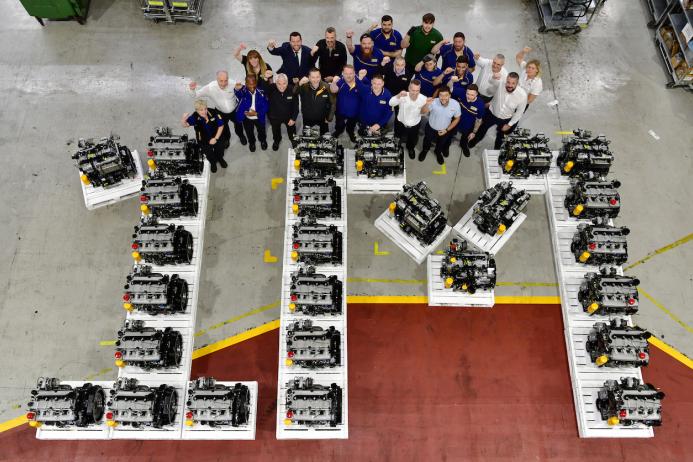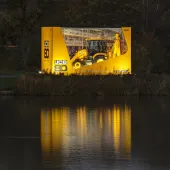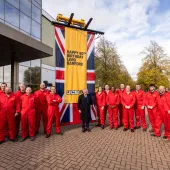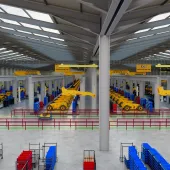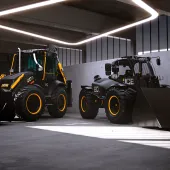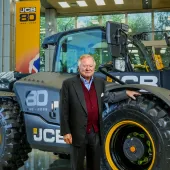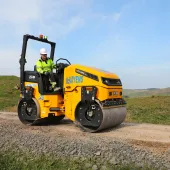Magic million: JCB mark engine production milestone
Major manufacturing milestone reached with one million engines produces in 20 years
JCB have marked a major manufacturing milestone with the production of their one-millionth engine.Production started in 2004 at JCB Power Systems in Foston, Derbyshire, and expanded to JCB India in 2010 with the opening of a dedicated plant in Ballabgarh, Delhi. From three engines a day 20 years ago, JCB now produce around 500 a day, becoming a world leader in the design, development, and manufacture of diesel engines, and are now pioneering development of hydrogen combustion engines.
Today, JCB chairman Anthony Bamford paid tribute to the JCB teams around the world who have played a part in the engine’s success. Lord Bamford said: ‘To have made one million engines in 20 years is quite some achievement. This really is a significant moment for our teams around the world, a real achievement.
‘The JCB engine is very well respected around the world for its reliability and very well appreciated by our customers. JCB machines work in dirt and hot and cold climates, and from the moment they go to a customer, they are working hard and doing a full day’s shift. The engine really is the beating heart of that reputation for reliability.
‘It was a major decision at the time to make our own engines and I was directly involved in that; it has paid off and I’m very pleased we made the decision. As we hit the milestone of producing one million engines, the time is right to acknowledge the part my father played in the design, not only of this engine, but other engines which he designed with other people in the past. My father died in 2001, so our engines were running as prototypes by that time, and he had a lot to do with it. I’m thankful he was involved in this engine so many years ago.’
JCB Power Systems’ engines have been instrumental in helping set world records – first when the JCB Dieselmax streamliner, powered by two JCB engines, became the fastest diesel-powered car in the world in 2006 when it reached a speed of 350.092 miles/h on the Bonneville Salt Flats, in the US – a record that still stands. In 2019, JCB’s Fastrac tractor stormed into the record books as the world’s fastest tractor with a speed of 135.191 miles/h – thanks to JCB’s 7.2-litre, 6-cylinder Dieselmax engine.
A team of more than 150 engineers is currently engaged in developing hi-tech hydrogen combustion engines for use in JCB machinery as part of a £100 million investment. More than 120 engines have come off the production line so far and many machines powered by these super-efficient engines are currently undergoing evaluation.

